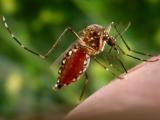Apr 1, 2011
Senate committee supports stiffer penalties for food safety violations
The Senate Judiciary Committee yesterday unanimously supported a bill that would increase criminal penalties for those who knowingly expose the public to contaminated food, Food Safety News (FSN) reported today. The bill would authorize prison sentences of up to 10 years for any person or company that "knowingly endangers American lives by contaminating the food supply by distributing misbranded or tainted food products," said a news release from Sen. Patrick Leahy, D-Vt., committee chair and author of the bill. The measure, called the Food Safety Accountability Act, increases such offenses from a misdemeanor to a felony. Leahy said the federal Sentencing Commission has found that convictions for knowingly distributing tainted food usually don't lead to jail time. The FSN story said the committee approved Leahy's bill with little debate, but its prospects on the Senate floor are uncertain, given a crowded agenda
currently dominated by a budget battle. Leahy had introduced the same bill in the previous Congress, and it was unanimously approved by his committee in September 2010, the senator said.
Apr 1 Food Safety News story
Mar 31 Leahy press release
Consortium launches online resource on food risk communication
An international consortium of government agencies and academic centers yesterday announced the launch of an initiative called the International Center of Excellence in Food Risk Communication (ICEFRC), with the stated aim of promoting "effective communication and informed decision-making about food risks from farm to fork." The group simultaneously launched its Web site, foodriskcommunications.org, which provides resources to help professionals and the public communicate about food safety, nutrition, and health, according to a press release. The ICEFRC's founding organizations include Food Standards Australia New Zealand; Health Canada; the Joint Institute for Food Safety and Applied Nutrition, a project of the US Food and Drug Administration and the University of Maryland; the Department of Homeland Security's National Center for Food Protection and Defense, based at the University of Minnesota; the US Department of
Agriculture; and the International Food Information Council (IFIC) Foundation, a nonprofit, nonpartisan educational organization that draws funding from government grants, food companies, associations, and individuals. The IFIC Foundation, based in Washington, DC, serves as primary facilitator of the ICEFRC and manages its Web site.
Mar 31 ICEFRC press release
ICEFRC homepage
FDA raises concerns in letter to cilantro industry
Food safety officials at the US Food and Drug Administration (FDA) said today that the agency sent a letter to cilantro growers, packagers, and distributors, raising concerns about patterns the agency has seen in its ongoing sampling of fresh cilantro. In a guidance letter from Dr Michael Landa, acting director of the FDA's Center for Food Safety and Applied Nutrition, the FDA said since 2004 it has confirmed Salmonella species in 28 samples of fresh cilantro that was in or about to enter commerce from both domestic and imported sources. It warned about the potentially fatal complications of Salmonella infections, especially in children, older people, and those with immune system compromise. The FDA emphasized that cilantro is typically consumed raw, making steps to minimize contamination all the more crucial. As it has done for other commodity segments that have raised foodborne illness concerns in the past, such as
leafy greens and tomatoes, the FDA advised the cilantro industry to review its current operations, assess hazards that are unique to producing cilantro, and develop specific control strategies to reduce the contamination risk. The FDA also offered its technical assistance to the industry.
March FDA guidance letter for cilantro firms
Dengue activity pressures Paraguay hospitals
Paraguay's health ministry has ordered the suspension of elective surgeries at hospitals to help the country's medical system cope with a surge of dengue infections, which has sickened 13,000 people this year and led to 18 deaths, the Associated Press (AP) reported on Mar 30. Deputy health minister Edgar Gimenez said the health system hopes to hire 2,000 more doctors and nurses to assist with the epidemic response, according to the AP. The number of 2011 dengue deaths has already surpassed 2007 levels, when 17 deaths were reported. In 2010, 15 deaths were reported, but in 2008 and 2009 no deaths from the disease were reported.
Mar 30 AP story
In other dengue developments, Hawaii's health department has received reports of 12 more possible dengue fever cases, the Honolulu-based Star-Advertiser reported yesterday. Earlier this week the Hawaii Department of
Health (HDH) announced that two earlier cases had been confirmed, along with two other suspected cases. All four are Oahu residents. A spokeswoman for the HDH told the Star that it is awaiting test results from the US Centers for Disease Control and Prevention (CDC) on the two earlier cases and the 12 new ones. The recently reported dengue cases are Hawaii's first locally acquired dengue cases since 2001, when the virus resurfaced after 56 years and led to an epidemic that included 122 confirmed cases on three islands.
Mar 31 Star-Advertiser story


















